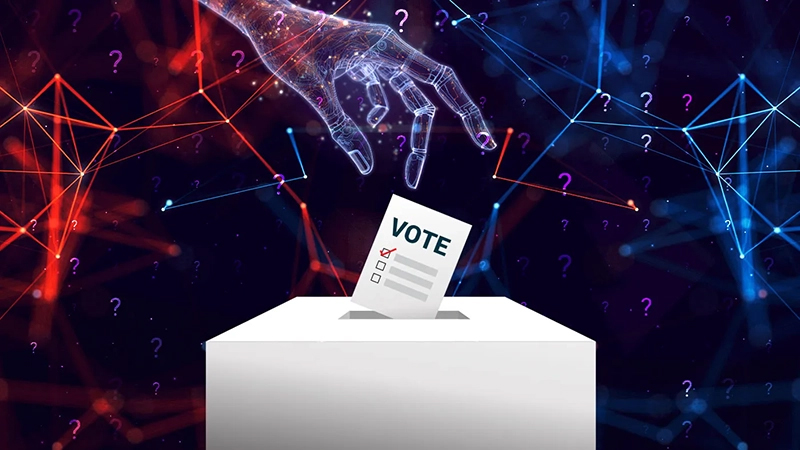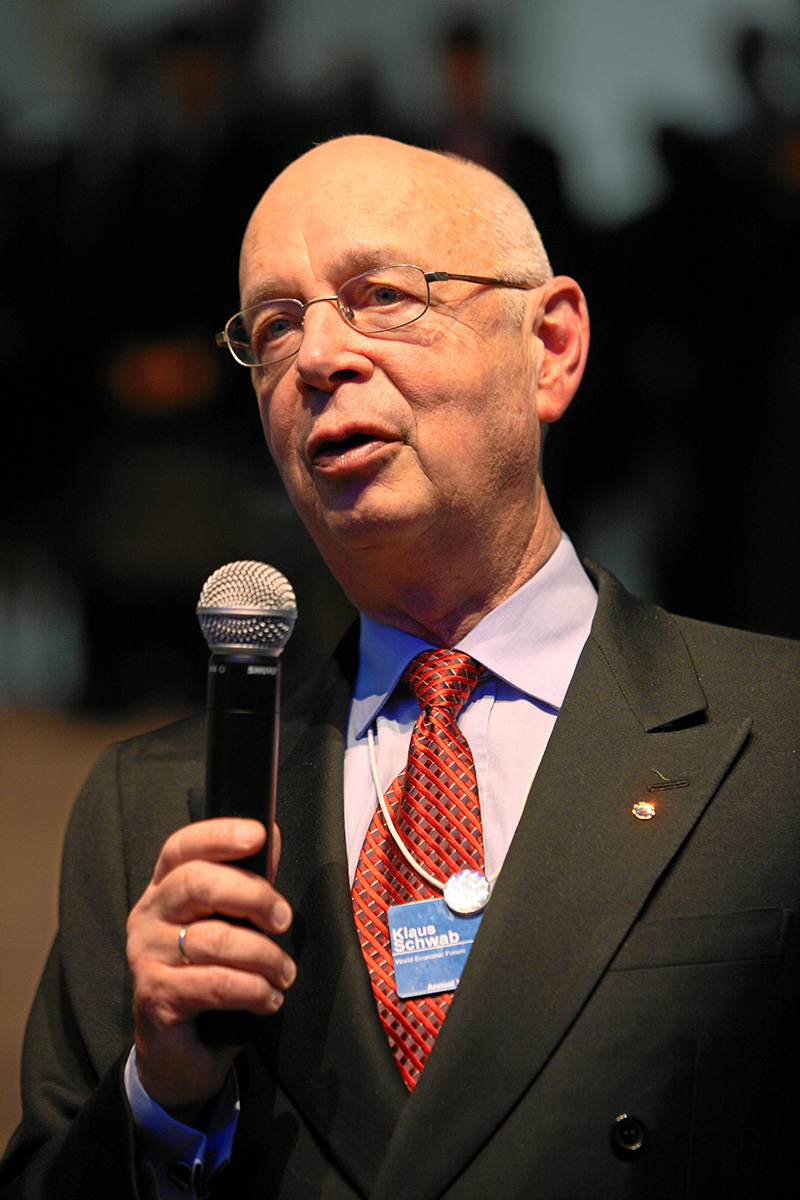The Radical Vision of Klaus Schwab
Klaus Schwab, the Chairman of the World Economic Forum (WEF), has sparked a firestorm with a controversial prediction that could reshape the future of democracy. Speaking to Google co-founder Sergey Brin, Schwab envisioned a world where artificial intelligence (AI) might render traditional voting obsolete.
Schwab, addressing an audience at the WEF gathering, made a striking statement. “Digital technologies mainly have an analytical power; now we go into a predictive power, and we have seen the first examples, and your company very much evolved into it,” he told Brin. He then postulated a future where AI’s prescriptive mode could predict election results, potentially negating the need for actual voting.

Elections: A Thing of the Past?
The audience fell silent as Schwab posed a provocative question: “Afterwards you can say ‘why do we need elections?’ because we know what the result will be.” This futuristic scenario, where AI dictates leadership choices, presents a radical shift from traditional democratic processes.
“Afterwards you can say ‘why do we need elections?’ because we know what the result will be said Schwab.
Brin’s Perspective on AI and Leadership
Brin, engaged in this thought-provoking dialogue, mulled over the idea of replacing world leaders with an AI decision-making framework. He lauded Schwab’s insights as “profound,” igniting further debate about the role of AI in governance.
Schwab, delving deeper, addressed the broader implications of AI on humanity. “We need new concepts to define what humanity is and what’s the purpose of our lives is,” he remarked, envisioning a future where AI takes over menial tasks and agriculture, fundamentally altering human roles and responsibilities.
WEF’s Stance on AI-Driven Misinformation
Despite Schwab’s futuristic predictions, the WEF has flagged AI-powered misinformation as a significant global threat. Their “Global Risks Report 2024” identifies misinformation and disinformation as key challenges, impacting public trust in facts and authority. The WEF acknowledges the delicate balance between combating misinformation and safeguarding free speech.

Copyright by World Economic Forum. Swiss-image.ch/Photo by Remy Steinegger
Misinformation and Free Speech
The WEF report highlights the dilemma faced by authorities: cracking down on AI-generated misinformation risks repression and erosion of rights. Yet, there’s also the danger of governments acting too slowly, creating a tension between preventing misinformation and protecting free speech.
Addressing Global Risks: WEF’s Strategy
In their report, the WEF emphasizes the need for localized strategies, breakthrough endeavors, collective actions, and cross-border coordination to mitigate known and emerging risks. The organization concludes that “leveraging investment and regulation” are critical in managing global risks, including disinformation and climate-related issues.



